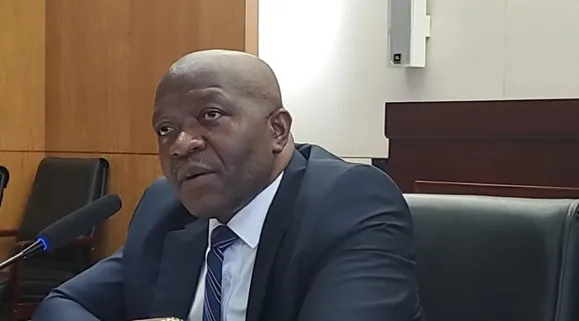
Finance and Development Planning Minister Augustine Kpehe Ngafuan has hailed the Central Bank of Liberia (CBL) for its growing role in stabilising the economy, urging closer cooperation between fiscal and monetary authorities to ensure no Liberian is left behind in the nation’s economic transformation.
Speaking on Wednesday, July 23, during the public reading of the CBL’s Monetary Policy Communiqué, Ngafuan praised the Bank’s transparency in openly communicating its policy direction.
He said such engagement is essential to strengthening public confidence and fostering collaboration between institutions tasked with steering Liberia’s financial recovery.
“Let me congratulate you, Honorable Governor, and the team, the Board, for this,” he told Central Bank Executive Governor Henry F. Saamoi. “This shows that we recognize that we are not perfect men and women. We come in humility.
We come to hear from our people.”
Reflecting on his own career, Ngafuan recalled his early years as a bank examiner in the Supervision Department under former Executive Governor Elie Saleeby, describing the Central Bank as a “place of merit and honor.”
He credited his time attending Monetary Policy Committee meetings under the late Governor Charles Green in 2004 with deepening his understanding of Liberia’s financial system.
Ngafuan emphasised the interdependence of Liberia’s fiscal and monetary institutions, likening them to “Siamese twins.”
“No matter how well we work, if we do not have the support of the Central Bank, we will fail. And no matter how well you work, if you do not have our support, you will fail,” he said.
The minister also lauded Governor Saamoi for his effective transition from the private banking sector to public service, commending his “brilliance, diplomacy, and the poignancy of his arguments helping us make a strong case for Liberia.”
Ngafuan urged swift reforms to improve the country’s payment systems, particularly the creation of a 24-hour payment switch to ease port operations.
“Every time there are delays in clearing goods at the port, demurrage is charged, and importers pass those costs on to consumers,” he warned, stressing the need for urgent solutions to cut costs and protect consumers.



